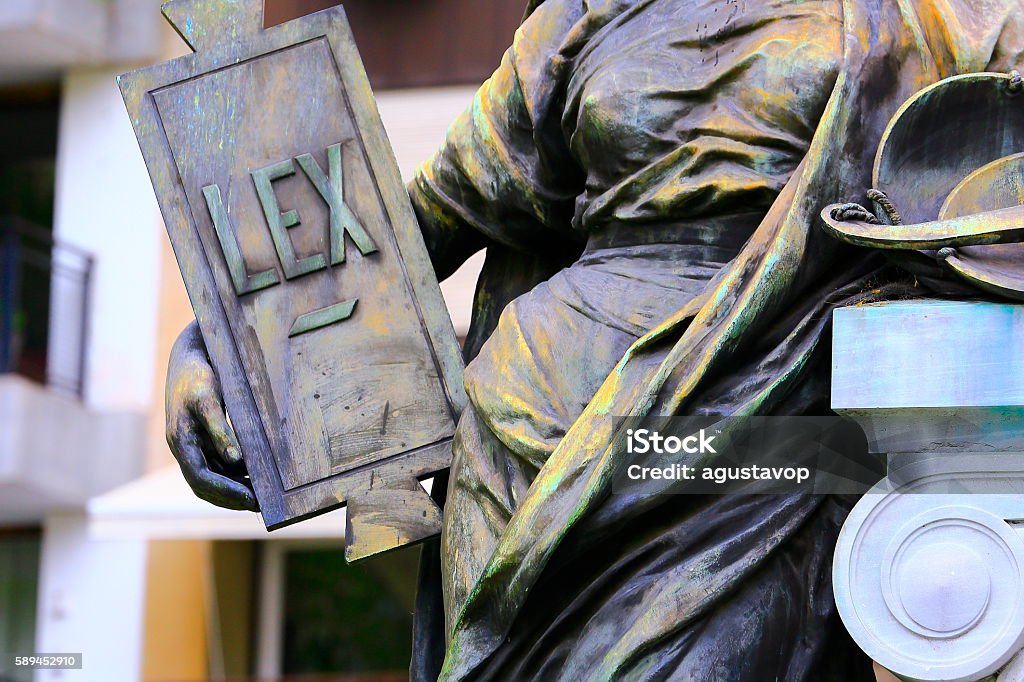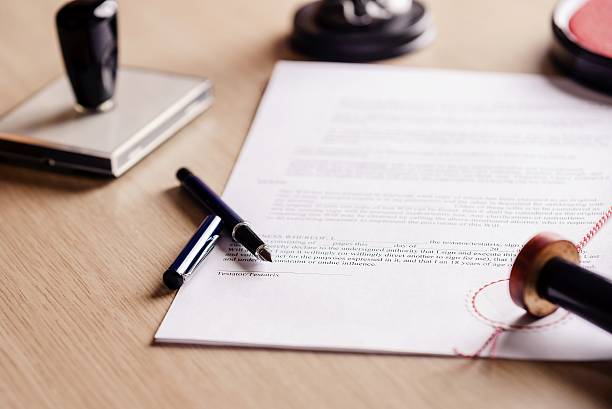What Your Attorney Wishes You Knew Before Trial
Going to trial can be one of the most intense and life-altering experiences in a person’s life. Whether it’s a criminal case, civil dispute, or family law matter, the stakes are high, emotions run deep, and preparation is everything. While your attorney is your advocate, guide, and protector in the courtroom, there are certain truths and insights they wish you understood before walking into trial.
This article reveals the crucial things most attorneys wish their clients knew before the trial begins—from managing expectations and understanding courtroom behavior to preparing emotionally and practically. If you’re facing trial or supporting someone who is, this guide will prepare you for what lies ahead and help you become the kind of client who helps—not hinders—their legal team.
1. The Legal Process Is Not Like TV Shows
What You Might Think:
Many people believe trials are quick, dramatic, and always end with a clear moment of justice—just like in the movies.
What Your Attorney Wants You to Know:
Real-life trials are slow, methodical, and sometimes boring. Legal arguments, objections, motions, and jury selection can take days or even weeks. Courtroom etiquette is strict, and there’s little room for theatrics. Understanding this can help reduce frustration and unrealistic expectations.
“Most clients expect a Hollywood-style showdown. In reality, trials are filled with long pauses, procedural motions, and complex legal debates,” says one veteran defense attorney.
2. Winning Is Never Guaranteed
What You Might Think:
If the truth is on your side, you’ll automatically win.
What Your Attorney Wants You to Know:
Even with strong evidence, there is never a guaranteed outcome. Judges and juries are human. Trials are influenced by how arguments are presented, how evidence is perceived, and how witnesses perform. Attorneys want clients to prepare for every possible result, including loss or compromise.
This also applies to settlement offers. Sometimes, attorneys encourage clients to accept a settlement not because they’re giving up, but because the trial could end worse.
3. Preparation Is a Two-Way Street
What You Might Think:
“My lawyer will handle everything.”
What Your Attorney Wants You to Know:
Your lawyer needs your cooperation, honesty, and involvement. You may be asked to review documents, help locate evidence, or clarify timelines. Your input can make or break a case.
Not answering phone calls, failing to show up to meetings, or providing incomplete information can severely damage your defense or claim.

4. Your Past May Come Up—Be Honest
What You Might Think:
“No one will find out about my past mistakes.”
What Your Attorney Wants You to Know:
If you’ve had past legal issues or embarrassing details, your attorney needs to know upfront—not during trial.
Nothing frustrates a lawyer more than being blindsided by damaging information revealed by the opposing side. Honesty builds strategy. If your attorney knows your weaknesses, they can work to minimize them.
5. Your Behavior in Court Matters Tremendously
What You Might Think:
“I just have to sit there while the lawyer does the talking.”
What Your Attorney Wants You to Know:
The judge and jury are always watching you. Your facial expressions, body language, and tone of voice can all affect how credible and sympathetic you appear.
Rolling your eyes, sighing, whispering, or reacting to testimony can hurt your case. Your lawyer wants you to behave with calm, respect, and composure—even when emotions are high.
6. Testifying Is Harder Than It Looks
What You Might Think:
“I’ll just tell my side and everyone will understand.”
What Your Attorney Wants You to Know:
Testifying is one of the most nerve-wracking parts of a trial. You’ll be cross-examined, possibly for hours, and opposing counsel will try to trip you up.
Your attorney will usually conduct mock cross-examinations or rehearsals to prepare you. Stick to facts, avoid guessing, and never volunteer extra information. Even a minor slip-up can damage credibility.
7. Witnesses Don’t Always Perform as Expected
What You Might Think:
“My witnesses will back me up 100%.”
What Your Attorney Wants You to Know:
Even well-intentioned witnesses can get nervous, forget details, or contradict prior statements. Don’t expect perfection. Attorneys want clients to be realistic about what witnesses can deliver and understand that inconsistencies are part of trial.
8. Trials Are Emotionally Draining
What You Might Think:
“It’s just a few days in court. I can handle it.”
What Your Attorney Wants You to Know:
Trials can be long, tiring, and emotionally exhausting. You may feel anxiety, frustration, anger, or sadness. There will be moments when your case looks strong—and others when it feels hopeless.
Attorneys often wish clients knew how emotionally tough the trial process can be and prepared for it by getting rest, limiting media exposure, and building emotional support.
9. Don’t Talk About the Case Publicly
What You Might Think:
“I can post about this online or talk to my friends—it’s my case.”
What Your Attorney Wants You to Know:
Loose lips sink ships. Anything you say publicly—online, in text messages, or in conversations—can be used against you.
Lawyers want clients to avoid:
-
Posting on social media
-
Discussing details with coworkers
-
Giving interviews without approval
Even innocent comments can be twisted in court.
10. Your Attorney Is on Your Side—Trust Them
What You Might Think:
“My lawyer doesn’t seem emotional enough. Do they care?”
What Your Attorney Wants You to Know:
Attorneys are trained to be calm, logical, and strategic. That doesn’t mean they don’t care. In fact, staying cool-headed is what helps them fight for you.
If you don’t understand a decision or feel confused, talk to your attorney. Trust is essential. They want you to feel supported but also recognize that emotional reactions don’t win cases—preparation does.
11. Documentation and Timelines Matter
What You Might Think:
“I don’t need to write everything down.”
What Your Attorney Wants You to Know:
In a legal case, details and timelines are everything. Your lawyer may ask you to create:
-
A timeline of events
-
A list of witnesses
-
Copies of emails, texts, or records
The more thorough and organized you are, the better your attorney can build your case.
12. You Might Not Get to Tell Your Whole Story
What You Might Think:
“I’ll explain everything during trial.”
What Your Attorney Wants You to Know:
The trial is not a full autobiography. Due to rules of evidence, you might only get to tell parts of your story. Some details may be excluded or deemed irrelevant by the court.
This frustrates many clients—but your attorney can find ways to strategically insert key facts within the rules.

13. Courtroom Attire Sends a Message
What You Might Think:
“It doesn’t matter what I wear—it’s about the facts.”
What Your Attorney Wants You to Know:
How you present yourself affects perception. Dress conservatively, neatly, and respectfully. It shows you take the process seriously.
Avoid flashy jewelry, revealing clothes, or casual attire. Your lawyer wants you to make a strong, respectful impression.
14. You May Not Understand Everything That Happens in Court
What You Might Think:
“I’ll know exactly what’s happening at every moment.”
What Your Attorney Wants You to Know:
Some parts of trial—like legal arguments over evidence or sidebars—may be confusing. That’s normal.
After sessions, your attorney can explain what happened, what it means, and what comes next. But during trial, they need to stay focused and can’t always stop to explain in real-time.
15. The Outcome May Feel Anti-Climactic
What You Might Think:
“There will be a big moment when justice is served.”
What Your Attorney Wants You to Know:
Some verdicts are announced without drama. You may feel relief—or disappointment—but it may not come with fanfare.
Whether you win, lose, or settle, the end of trial can feel strangely quiet. Attorneys want clients to prepare emotionally for this and focus on the long-term impact, not the short-term feeling.
16. Billing and Costs Continue During Trial
What You Might Think:
“Once the trial starts, the legal fees stop.”
What Your Attorney Wants You to Know:
Trials are the most expensive part of any legal case. Attorneys often work long hours preparing arguments, cross-examinations, and evidence.
Clients should understand and prepare for:
-
Hourly billing or fixed trial fees
-
Costs of expert witnesses or court reporters
-
Travel, lodging, or administrative expenses
Talk openly with your attorney about cost expectations.
17. Stay Calm—Even When Things Go Wrong
What You Might Think:
“If something unexpected happens, I need to react.”
What Your Attorney Wants You to Know:
Trials are full of surprises—objections upheld, evidence excluded, a witness goes off-script. Your attorney wants you to stay composed and trust the strategy.
Reacting emotionally can damage your credibility. If something seems off, wait for a break and talk to your lawyer.
18. A Trial Is Only One Step in the Legal Journey
What You Might Think:
“Trial is the end of the road.”
What Your Attorney Wants You to Know:
Sometimes, the trial is not the final step. There could be:
-
Post-trial motions
-
Appeals
-
Enforcement of judgments
-
Negotiations afterward
Understanding this helps set expectations. Your lawyer wants you to see the big picture, not just the trial.
19. You Have More Control Than You Think
What You Might Think:
“It’s all up to the lawyer.”
What Your Attorney Wants You to Know:
You play a huge role in the outcome. By being honest, prepared, respectful, and emotionally steady, you improve your chances of success.
The best clients are partners in the process, not passive observers. Your attorney wishes you knew that you have real power—in how you act, prepare, and respond.
Conclusion: Be the Client Your Lawyer Can Fight For
Trial is serious business. It’s stressful, expensive, unpredictable, and often emotional. But it’s also an opportunity for justice, resolution, and closure.
What your attorney wishes you knew before trial is not meant to scare you—it’s to empower you. The better informed, prepared, and emotionally ready you are, the more effective your legal team can be.
By understanding these insider truths, you position yourself to face trial not as a victim of the system, but as a strong, cooperative participant in your own defense or claim.
